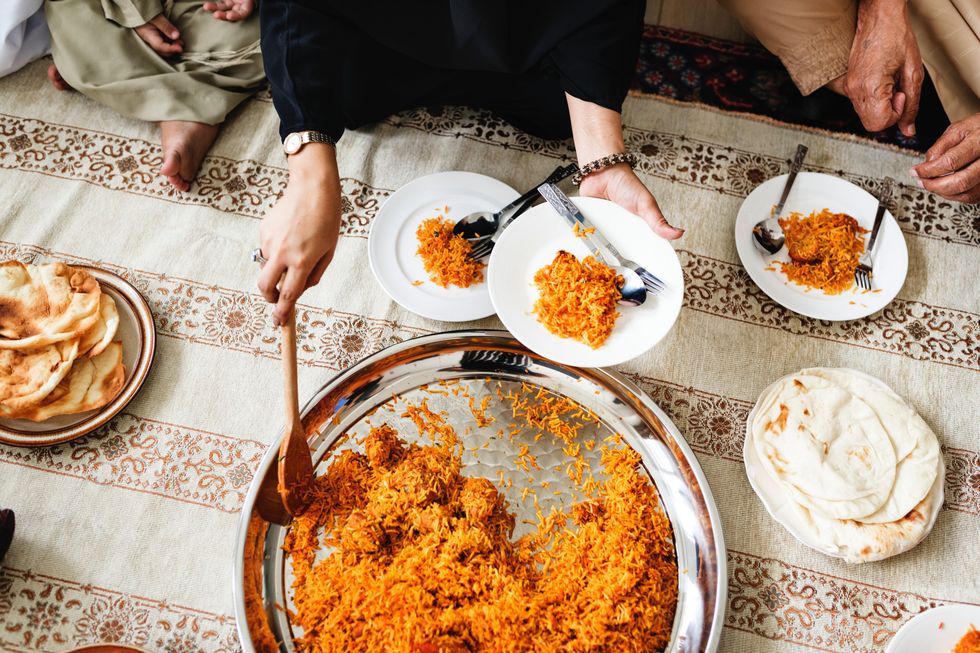I traipse through the familiar burgundy doors of my grandparents' house, encasing aromas of masala and cumin behind the wooden barriers. My stomach lets out a growl in longing, suddenly reawakening after an eighteen hour day of fasting at the scent of my grandmother's signature flaky puff pastries and my grandfather's Indian-style fried chicken. Setting the table as fast as I possibly could without earning my grandmother's criticism for clanking around her china plates, I waited with bated breath for the adhan (the Muslim call to prayer) that signaled the end of my hunger.
For the duration of my life, the satisfying crunch of the pani puri coupled with the tang of the dai, or yogurt, side dish categorized my Ramadan. These foods, which only found their way to the mahogany dining table during this fateful month, represented the best part of growing up Muslim — an identity which I have struggled with since my first day at Sunday school. These recipes, significantly unhealthier than our usual meals and all the more delicious, were reserved for this time of year through an unspoken rule initiated by my grandmother. Looking back, I'm glad I never questioned it, because the rarity of these dishes made the month all the more special.
However, contrary to the popular belief among my far-from-religious parents, Ramadan is about more than the delicacies that surface between the first fast and Eid. I can't say what it means for the majority of Muslims or even the majority of mediocre Muslims like myself, but I can say what it means for me personally. Ramadan, regardless of its actual significance, represents a time for me to re-evaluate. Throughout the year, I find myself in a constant battle with my standing within my religion; in part, I feel like I would be happier if I was able to more readily hand over my worries to God, perhaps even pray more than once in a blue moon. On the other hand, sometimes I wonder if I would ever be drawn to Islam if I was not born into the faith — which I think I can wholeheartedly answer no to, but I don't think that necessarily discredits having a connection with the religion entirely.
But when Ramadan comes along, the rollercoaster that is my ever-changing relationship with my faith comes to an abrupt halt; suddenly, I am no longer questioning the person I am in relation to the person who I am meant to be. I am fasting and praying and eating food so good it feels like it's the closest to heaven I'll ever reach. It's like a do-over on a year of mistakes and failed expectations of spiritual growth — a chance to knock on God's doorstep with a bouquet of roses, a sad smile, and a promise that you'll do better next time.
Regardless, when Eid finally rolls around at the end of the month and the fried chicken recipes are stored away until next year, that hope in a renewed relationship with Islam is stored away too.

















